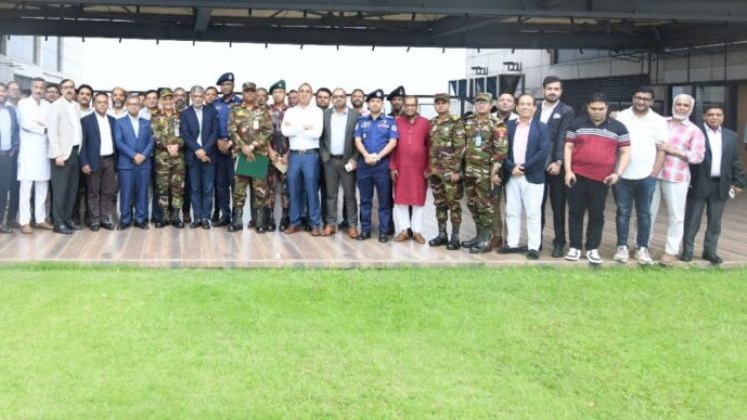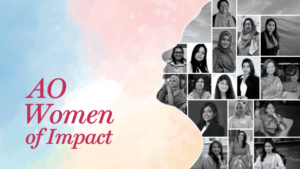
The BGMEA called a meeting on 11th August to discuss how to guarantee the seamless running of all industrial facilities in Bangladesh, including those in the apparel industry. The conference was held with members of law enforcement agencies, business organisations, and the BGMEA, FBCCI, and BTMA, by the Bangladesh Army’s GOC 9th Infantry Division and region Commander, Savar region. The summit was held at Uttara, Dhaka, at the BGMEA Complex.
Khandoker Rafiqul Islam, Acting President of BGMEA, represented the trade associations while GOC Major General Md. Moin Khan, NDC, PSC represented the 9th Infantry Division.
Attendees from BGMEA included First Vice President Syed Nazrul Islam, Vice President Md. Nasir Uddin, Abdullah Hill Rakib, and Rakibul Alam Chowdhury, as well as other directors.
The FBCCI was represented by President Mahbubul Alam, while Javed Akhtar, President of the Foreign Investors Chamber of Commerce and Industry (FICI), and Md. Fazlul Haque, President (In charge) of BTMA, were also present. Additionally, Helal Uddin, President of the Bangladesh Shop Owners Association, along with representatives from various trade organizations and business leaders, participated in the meeting.
The meeting also included Industrial Police Additional IGP Md. Mahbubur Rahman, BPM-Bar, PPM, Army Task Force Commander Colonel Abu Mohammad Mohiuddin, BGBM (Bar), PBGM, MPhil, and representatives from BGB and RAB.
Khandoker Rafiqul Islam, the acting president of the BGMEA, commended the Bangladesh Army for their perseverance, efficient assistance throughout the nation’s recent problems, and contribution to the nation’s economic recovery. He said that 99.89 per cent of factories in Gazipur, 99.51 per cent in Savar-Ashulia and Dhamrai, 100 per cent in Narayanganj, 100 per cent in DMP regions, and 100 per cent of textile industries in Chittagong had restarted operations with the direct assistance of the Army. A variety of law and order concerns pertaining to industrial companies were also discussed at the meeting.
Concerns were voiced concerning illicit actions aimed at gaining control over the jhut trade in industrial regions controlled by the garment industry. These “Jhut” sector groupings have produced youthful gangs that disrupt workplaces, intimidate workers and owners of factories, and take hostages in the garment industry. To overcome these obstacles, the garment traders appealed for help from the Army.
Businessmen also asked for protection for cars that transport goods on public roads and highways, pointing out that unnecessarily long delays in the loading and unloading of cargo at Chittagong port reduce the competitiveness of the industry. They also drew attention to the delays in the clearance of cargo at Dhaka Airport and asked the Army to intervene in order to speed up these procedures. To boost confidence among business owners and employees, the traders asked the Joint Task Force, led by the Army, to tour recently vandalised firms.
Major General Md. Moin Khan assured that the Army’s priority is to support the industry’s recovery as it is the backbone of the economy. He mentioned that the task force has already been deployed to ensure security in Savar and Ashulia and is responding quickly to incidents. Through the deployment of a “quick reaction force,” teams are able to resolve incidents swiftly and provide assistance as needed. As a result, the number of complaints in these areas decreased on the second day compared to the first.






